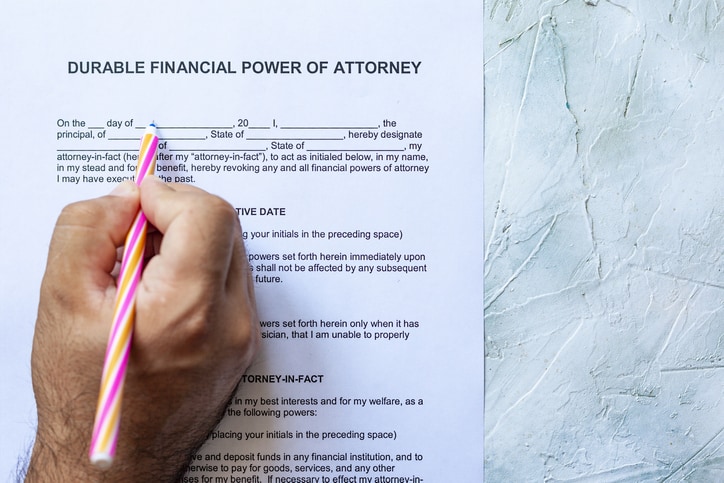When Michael was several years into his retirement, he felt that his estate plan was well up to date. He had addressed so many tangible assets in his life in that plan, from his home to his cars to a small but valuable art collection he and his wife had accumulated. Unfortunately, while the “physical” part of his estate plan was taken care of, Michael had neglected his digital estate planning. Specifically, he failed to address all the aspects of his digital life in that plan that were important – including all of his online accounts. So, once he passed away, he’d left behind quite the puzzle for his family to sift though and trace the answers to, which was the last thing they wanted to do in the midst of their grief.
How can your family prevent the same type of outcome?
Remember that digital assets need to be planned for in much the same way as the rest of your assets, so don’t marginalize them. Digital assets are easy to forget about because they become so ubiquitous to our daily life. Think about it – in a normal day, you’re on email, your smartphone, social media channels and using various web services. You’re also streaming entertainment services through music and television. Still, although it’s easy to not be conscious of it as you go about your routine, it doesn’t mean that it’s not something that needs to be addressed.
In an estate planning situation, you can decide to what degree that you’d like to inventory all of your digital assets, but one strategy is to have a list of service providers. It doesn’t mean including every account number or detail within that list, but by providing a list of banks, brokerages, advisors, and key online accounts, it will not be a complete mystery for whoever steps in later on.
What are digital assets?
And what needs to happen to ensure that this area of your life is as well covered as your tangible assets? Digital assets may include a range of things held electronically, from financial accounts, to files, photographs, social media, subscriptions, and on and on.
Financial Accounts
These can include:
– Bank accounts, such as checking, savings, certificates of deposit, etc.
– Brokerage accounts
– Retirement accounts
If you aren’t getting statements from these accounts through the mail and instead have set them up as paperless statements to be accessed online, some of these electronic communications take on a higher priority of your focus. An agent acting under a power of attorney needs to know what accounts exist, which bills need to be paid, and how to pay them. Similarly, an executor needs to be able to identify where assets are located, including where accounts are held.
Cloud Storage
Dropbox, Box, Google Drive, iCloud and other kinds of cloud services are vital because they may serve as a place where you currently store records, photos, documents, music and other types of files.
Business Records
Do you own a business and have a place where business records are stored? If you envision someone stepping in to take over your role or you’re trying to sell the business, having access to those business records may be very important.
Social Media
There are far too many social media services and platforms to mention, but to the extent that you have photos, subscriptions, etc., it’s smart to have a conversation now about these assets from your “digital estate” through our planning process.
Online Payment Systems
In the last several years, there has been a proliferation of online payment systems and applications in which people can exchange money back and forth, such as PayPal. There may be money sitting in those kinds of accounts, which would become part of the estate.
Subscriptions
Yes, that Hulu, Netflix or Amazon Prime subscription is going to be important for someone stepping in, either to maintain or deactivate. So keep track of any active ones you may currently have.
Passwords
With passwords, one has to be mindful of security risks should they fall into the wrong hands. As an alternate to writing passwords down, there are online password services that will allow you to set up access for a family member or an agent to use in case of an emergency. This is a way to expediently handle the proliferation of accounts and passwords, without compromising the security of the underlying accounts.
Cryptocurrencies
If you hold cryptocurrencies, you’ll want to provide instructions for how to access an account, identify the brokerage or exchange, and if necessary, conduct any exchanges. Since cryptocurrencies can be relatively volatile, it’s important for an agent or successor to have access without undue delay.
Cryptocurrency exchanges may be outside of Illinois jurisdiction, and possibly United States jurisdiction. Therefore, should things proceed to probate upon your passing, it’s essential that you provided a detailed set of instructions for the designated person who is going to step in for you.
We Can Help You Take Inventory Of Your Digital Assets
Besides a trustee, executor or agent, who else should be made aware of your digital asset list? It can include not only a contact list of people, but also a contact list for service providers, such as your accountant, financial planner, banks, brokerages, cloud storage providers, and more.
One thing is for certain – the scope of digital tools will continue to grow. That being the case, it’s a reason to take stock of them for an estate plan and if you have an existing estate plan that hasn’t been updated in the last couple of years, it’s time to take another look to ensure that it encompasses any digital assets. Windy City Legal can help you on two key fronts:
1) Advising you on how to assemble your inventory for a digital estate plan as far as what should go on your list, and
2) Creating the formal language necessary for a trustee, executor or agent to execute the appropriate steps necessary within certain documents pertaining to your digital assets.
Don’t view your digital assets as something nice to have in your estate plan. Many of them should have a place in your estate plan along with more traditional assets. Addressing them and incorporating them an estate plan will give your family the continuity and clarity they deserve. To get started on your digital assets estate planning, call Windy City Legal for a consultation at 312-278-1187 today.











